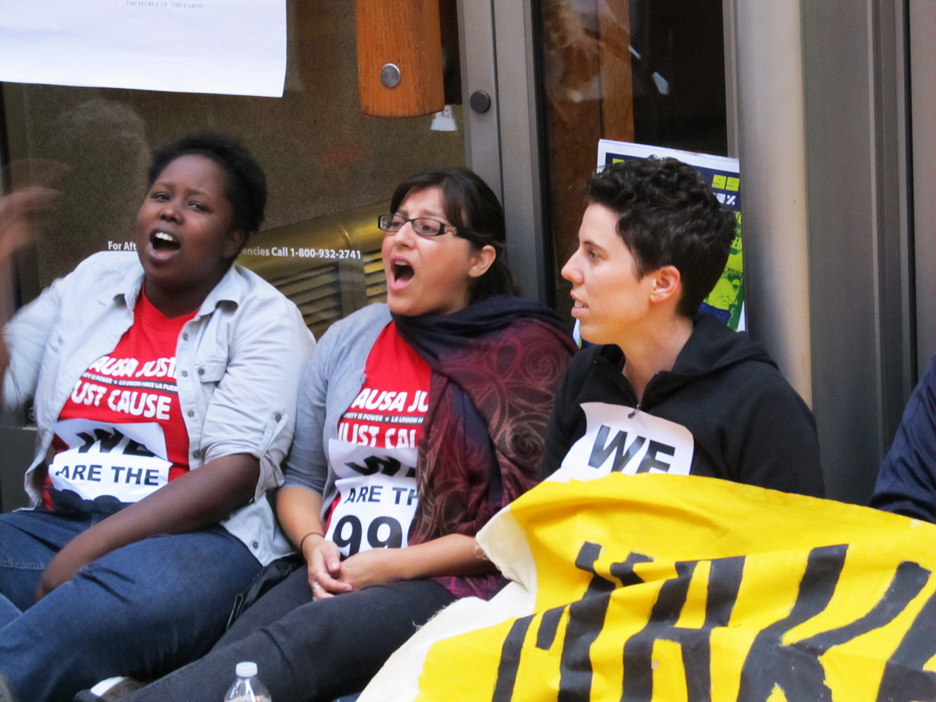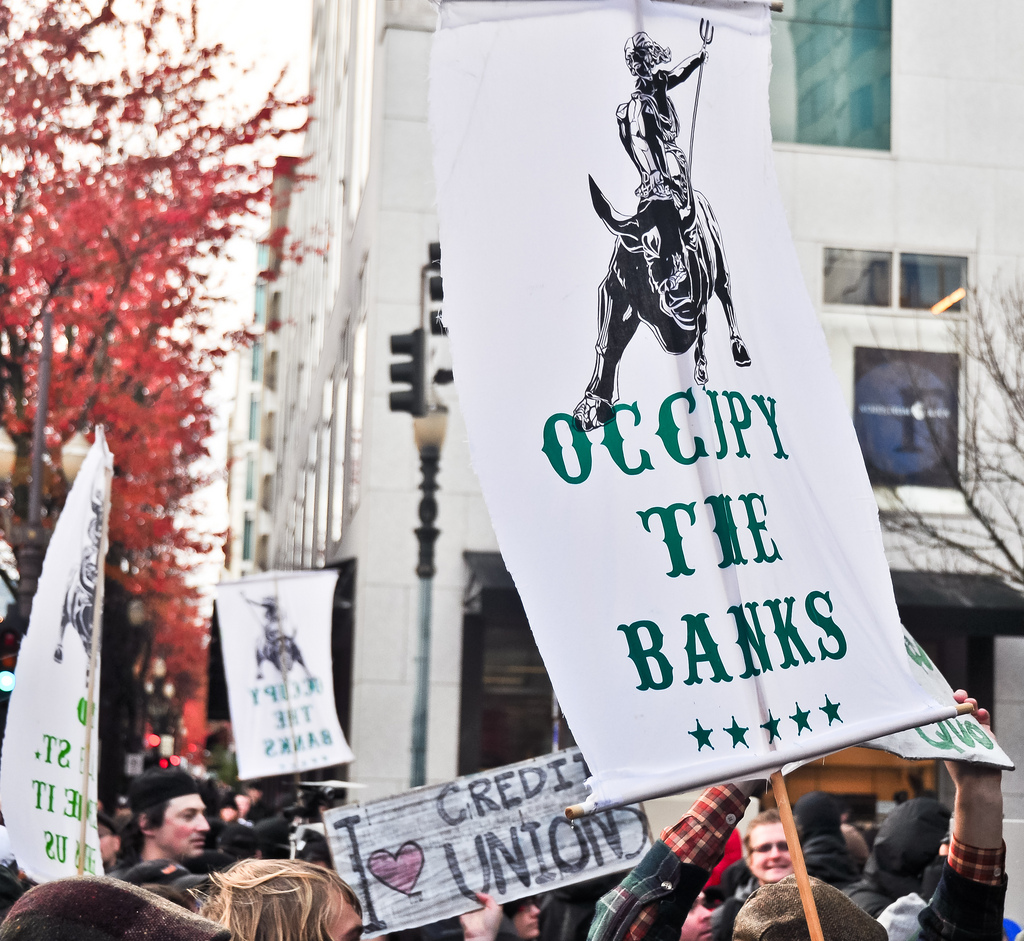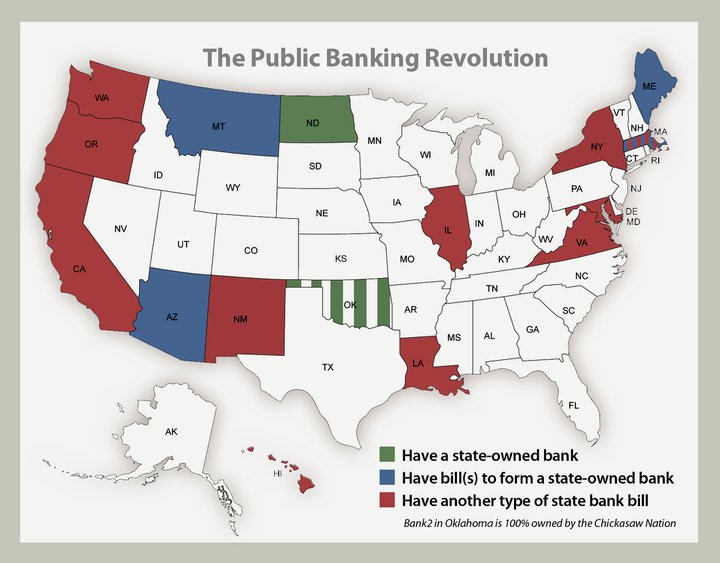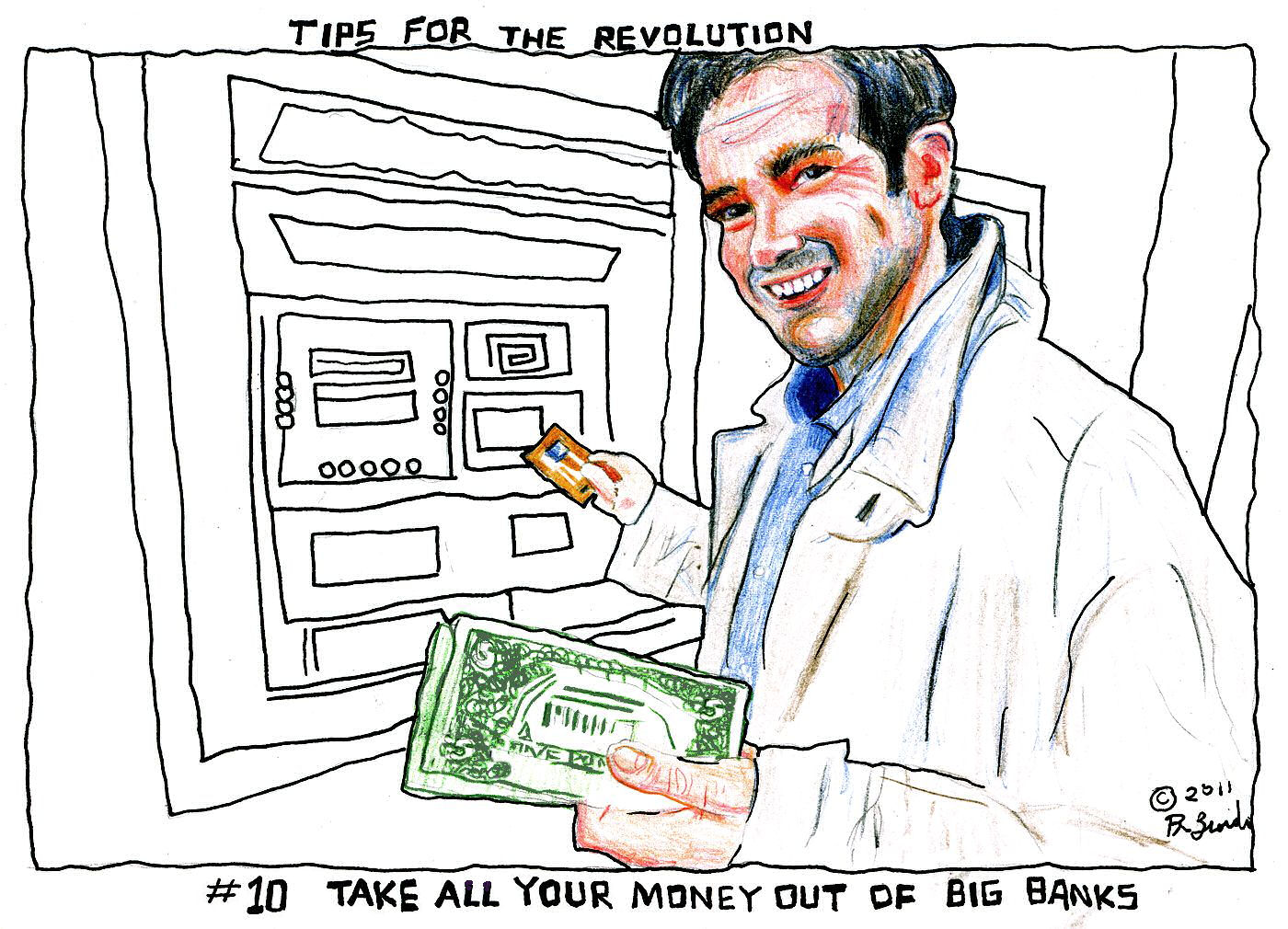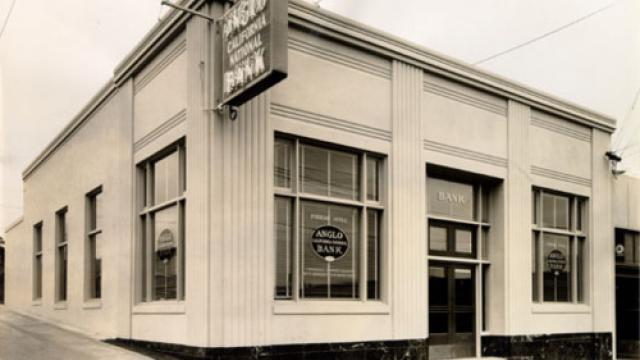
When the Occupiers took an interest in moving San Francisco’s money into a city-owned bank in 2011, it was chiefly on principle, in sympathy with the nationwide Move Your Money campaign. But recent scandals have transformed the move from a political statement into a matter of protecting the city’s deposits and reducing its debt burden. The chief roadblock to forming a municipal bank has been the concern that it was not allowed under state law, but a legal opinion issued by Deputy City Attorney Thomas J. Owen has now overcome that obstacle.
Establishing a city-owned San Francisco Bank is not a new idea. According to City Supervisor John Avalos, speaking at the Public Banking Institute conference in San Rafael in June, it has been on the table for over a decade. Recent interest was spurred by the Occupy movement, which adopted the proposal after Avalos presented it to an enthusiastic group of over 1,000 protesters outside the Bank of America building in late 2011. David Weidner, writing in the Wall Street Journal in December of that year, called it "the boldest institutional stroke yet against banks targeted by the Occupy movement."
But Weidner conceded that: "Creating a municipal bank won't be easy. California law forbids using taxpayer money to make private loans. That would have to be changed. Critics also argue that San Francisco could be putting taxpayer money at risk."
The law in question was California Government Code Section 23007, which prohibits a county from “giv[ing] or loan[ing] its credit to or in aid of any person or corporation.” The section has been interpreted as barring cities and counties from establishing municipal banks. But Deputy City Attorney Thomas J. Owen has now put that issue to rest in a written memorandum dated June 21, 2013, in which he states:
1. A court would likely conclude that Section 23007 does not cover San Francisco because the City is a chartered city and county. Similarly, a court would likely conclude that Article XVI, section 6 of the State Constitution, which limits the power of the State Legislature to give or lend the credit of cities or counties, does not apply to the City. . . . [A] court would likely then determine that neither those laws nor the general limitations on expending City funds for a municipal purpose bar the City from establishing a municipal bank. 2. A court would likely conclude that the City may own stock in a municipal bank and spend City money to support the bank’s operation, if the City appropriated funds for that purpose and the operation of the bank served a legitimate municipal purpose.
A number of other California cities that have explored forming their own banks are also affected by this opinion. As of June 2008, 112 of California's 478 cities are charter cities, including not only San Francisco but Los Angeles, Richmond, Oakland and Berkeley. A charter city is one governed by its own charter document rather than by local, state or national laws.
Which Is Riskier, a Public Bank or a Wall Street Bank?
That leaves the question of whether a publicly-owned bank would put taxpayer money at risk. The Bank of North Dakota, the nation’s only state-owned bank, has posed no risk to depositors or the state’s taxpayers in nearly a century of successful operation. Further, in this latest recession it has helped the state achieve a nationwide low in unemployment (3.2%) and the only budget surplus in the country.
Meanwhile, the recent wave of bank scandals has shifted the focus to whether local governments can afford to risk keeping their funds in Wall Street banks.
In making investment decisions, cities are required by state law to prioritize security, liquidity and yield, in that order. The city of San Francisco moves between $10 billion and $12 billion through 133 bank accounts in roughly 5 million transactions every year; and its deposits are held chiefly at three banks, Bank of America, Wells Fargo and Union Bank. The city pays $2.7 million for banking services, nearly two-thirds of which consist of transaction fees that smaller banks and credit unions would not impose. But the city cannot use those smaller banks as depositories because the banks cannot afford the collateral necessary to protect deposits above $250,000, the FDIC insurance limit.
San Francisco and other cities and counties are losing more than just transaction fees to Wall Street. Weidner pointed to the $100 billion that the California pension funds lost as a result of Wall Street malfeasance in 2008; the foreclosures that have wrought havoc on communities and tax revenues; and the liar loans that have negatively impacted not only real estate values but the economy, employment and local and state budgets. Added to that, we now have the LIBOR and municipal debt auction riggings and the Cypress bail-in threat.
On July 23, 2013, Sacramento County filed a major lawsuit against Bank of America, JP Morgan Chase and other mega-banks for manipulating LIBOR rates, a fraud that has imposed huge losses on local governments in ill-advised interest-rate swaps. Sacramento is the 15th government agency in California to sue on the LIBOR rigging, which Rolling Stone’s Matt Taibbi calls “the biggest price-fixing scandal ever.” Other counties in the Bay Area that are suing on the LIBOR fraud are Sonoma and San Mateo, and the city of Richmond sued in January. Last year, Bank of America and other major banks were also caught rigging municipal debt service auctions, for which they had to pay $673 million in restitution.
The question is, do taxpayers want to have their public monies in a bank that has been proven to be defrauding them?
Compounding the risk is the reason Cyprus “bail in” shocker, in which depositor funds were confiscated to recapitalize two bankrupt Cypriot banks. Dodd-Frank now replaces taxpayer-funded bank bailouts with consumer-funded bail-ins, which can force shareholders, bondholders and depositors to contribute to the cost of bank failure. Europe is negotiating rules imposing bail-ins for failed banks, and the FDIC has a U.S. advisory to that effect. Bank of America now commingles its $1 trillion in deposits with over $70 billion in risky derivatives, and has been pegged as one of the next banks likely to fail in a major gambling mishap.
San Francisco and other local governments have far more than $250,000 on deposit, so they are only marginally protected by the FDIC insurance fund. Their protection is as secured creditors with a claim on bank collateral. The problem is that in a bank bankruptcy, state and local governments will fall in line behind the derivative claimants, which are also secured creditors and now have “super-priority” in bankruptcy. In a major derivatives calamity of the sort requiring a $700 billion bailout in September 2008, there is liable to be little collateral left for either the other secured depositors or the FDIC, which has a meager $25 billion in its insurance fund. Normally, the FDIC would be backstopped by the Treasury – meaning the taxpayers – but Dodd-Frank now bars taxpayer bailouts of bank bankruptcies caused by the majority of speculative derivative losses.
The question today is whether cities and counties can afford not to set up their own municipal banks, both to protect their money from confiscation and to take advantage of the very low interest rates and other perks available exclusively to the banking club. A government that owns its own bank can keep the interest and reinvest it locally, resulting in government savings of an estimated 35% to 40% just in interest. Costs can be reduced, and taxes can be cut or services can be increased. Banking and credit can become public utilities, sustaining the local economy rather than mining it for private gain; and banks can again become safe places to store our money.
Ellen Brown is an attorney and president of the Public Banking Institute. Her twelve books include the best-selling Web of Debt and recently-published sequel The Public Bank Solution.
3 WAYS TO SHOW YOUR SUPPORT
- Log in to post comments



